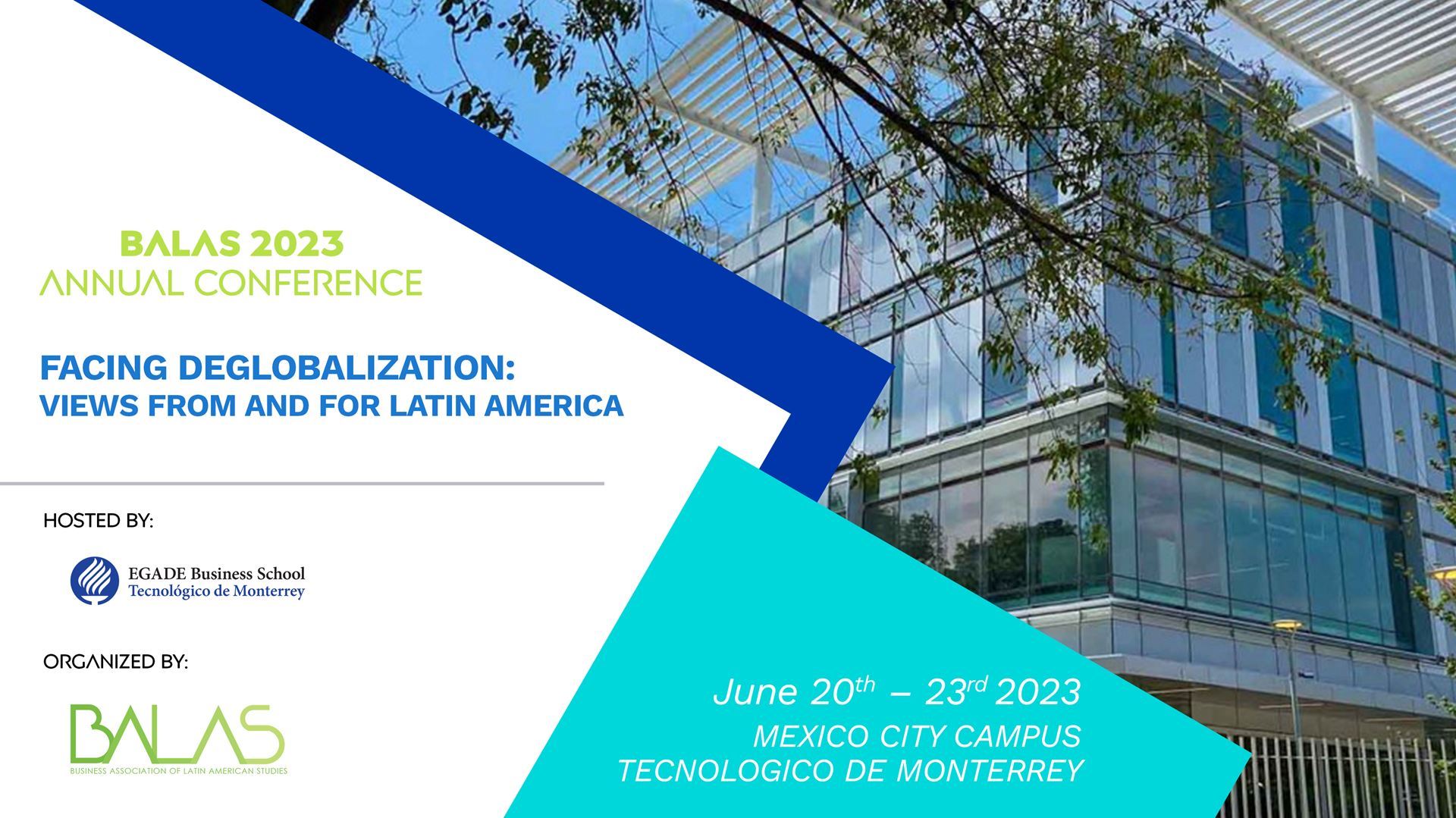- Home
- Conferences
- Past Conferences
- 2023 Annual Conference
BALAS 2023 Annual Conference
Mexico City, Mexico
Call for Papers
In June 2022, the IMF voiced concern about the impact of Russia's war on Ukraine on the world's ability to respond to climate change, supply chain disruptions, food and energy issues, and unpredictable financial markets. Is the world on route into geopolitical fragmentation? The World Economic Forum (WEF) reported in January 2021 that deglobalization trends are changing the global economy and accelerating inequality. The BALAS 2023 Conference will provide a scholarly academic forum for discussing deglobalization with LATAM-focused solutions.
"Deglobalization" refers to changes that complicate conducting business across international borders more than before. It is the reverse of globalization, economic liberalization, and a borderless international economy. Deglobalization raises societal issues. Policymakers' decisions are denounced as culprits. Could environmental or epidemiological concerns drive it? Protectionism and geopolitical rivalries also produce tensions and a "new reality" with its associated issues. Unprecedented global pressures have led scholars studying businesses and other organizations to reexamine issues on politics and opposition to globalization. BALAS 2023 will focus on this.
Business schools are navigating uncharted waters due to the trend towards deglobalization, even though, over the course of the past two hundred years, the global economy has gone through cycles of globalization and deglobalization. The goal of the BALAS 2023 special topic is to explore the deglobalization phenomenon and its impact on strategy, management, and business operations.
Special Conference Tracks
- Facing Deglobalization: Views from and for Latin America
- Management History
- Sustainable Business
General Tracks
|
|
Doctoral Colloquium Track: Track for doctoral research presentations


